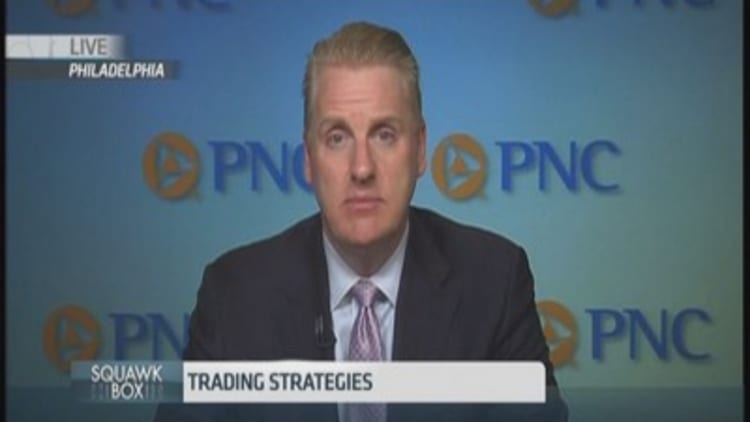Feeling a little more flush this year? Well, you soon could be – the dramatic fall in oil prices is expected is free up an average of $700 for each American household in 2015, according to the French lender Societe Generale.
If prices of around $2.31 a gallon are sustained this year, then households would have an extra 1.8 percent of their usual budget to spend, according to the bank. Economists at the Societe Generale also remained bullish on the U.S. recovery, are expect to see wage growth accelerate throughout 2015 and unemployment to continue its fall below 6 percent.
"We think investors may not fully appreciate the extent to which cheaper gasoline should boost U.S. consumer spending this year," the team of analysts said in a note on Friday.
"Lower gasoline prices in isolation (before the impact of cheaper energy and air travel) give consumers the equivalent of a near-2-percent pay rise in 2015."
Gasoline accounts for just over 5 percent of household spending in the U.S., according to the Bureau of Labor Statistics. While Washington think tank Securing America's Future Energy (SAFE) said in September that average household spending on gas was over $2,600 in 2013 -- a 111 percent increase when compared to 2002.
The annual average price of gasoline in 2014 was $3.34 per gallon, according to AAA, which says it is now at $2.182 a gallon -- even lower than the target given by Societe Generale.
. In its annual outlook on Tuesday it forecast 2015 gas prices to average $2.64 a gallon, which would save U.S. motorists a total of $97 billion this year, or around $750 per household, it said.
Even in Europe, where the cost of gas is less sensitive to oil price falls due to tax levies, consumers have seen changes at the pump. Average gas prices in the U.K. are back to levels last seen in the autumn of 2010, according to the British Automobile Association.

Weak global demand and booming U.S. production are seen as the key reasons behind the price plunge, as well as OPEC's (Organization of the Petroleum Exporting Countries) reluctance to cut its output. The price of Brent crude temporarily fell below $50 per barrel on Wednesday morning for the first time since May 2009, and is current trading around $ 50.50. WTI crude futures were hovering around $49 on Friday morning. Both have crash by around 57 percent since mid-June last year.
SocGen said that consumer staples stocks -- like L'Oreal, Mead Johnson, Modelex, P&G and ABInBev – were an ideal ways to play the price move, with consumers expected to head to the shops to spend their extra cash.
"Lower gasoline prices most benefit lower-income consumers, who spend a greater proportion of their disposable income on gasoline and other energy costs," the bank said in the research note.
"This blue collar demographic is the U.S. consumer segment that has struggled the most in recent years, so recovery here should be helpful for the U.S. sales growth of many consumer staples companies."
While many analysts and economists think the oil drop is positive for the U.S. consumer, not all are convinced. Lance Roberts, CEO of advisory firm STA Wealth Management, said he believes there is "scant evidence" that consumption will receive a boost.
Rather, he fears that jobs in the energy sector could be hit, which would drag on the economy.
"It is currently estimated that each job created in the energy sector, which are some of the highest wage paying jobs in the country, contributes roughly 2.8 jobs elsewhere," he said in a note on Thursday. "In any economy, nothing works in isolation."


